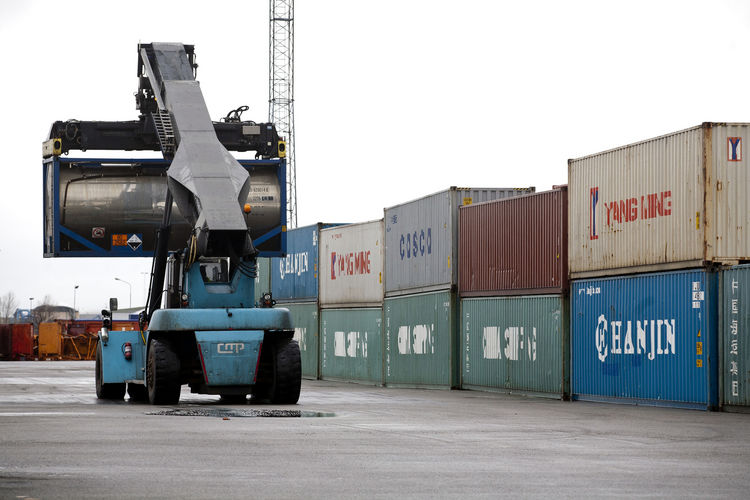- Buhari Seeks China’s Help to Develop West African Economies
President Muhammadu Buhari on Monday requested the Chinese government to help the West African states in the areas of economic development, visa facilitation for businesspersons and students, tourism infrastructure, as well as foreign direct investments.
He spoke in Beijing, China and stressed that the Chinese government’s economic help to West Africa must be complemented by the push from the member states in order to achieve the desired economic transformation.
The President, who departed for China on Saturday, spoke at the opening ceremony of the high-level dialogue between Chinese and African leaders and business representatives.
He made the call on behalf of the Nigerian government and the heads of state and governments of Economic Community of West African States, appealing to the Chinese government to assist the sub-region’s economic development efforts.
According to Buhari, with the Republics of The Gambia, Burkina Faso and São Tomé and Principe newly joining the Forum on China-Africa Cooperation, all member states of ECOWAS are, for the first time, participating in the FOCAC Summit.
Buhari, who noted that the ECOWAS region accounted for the 30 per cent of Africa’s population and Gross Domestic Product, thanked China for its increasing investments in the sub-region cutting across many sectors.
He said, “China is today the largest investor in the sub-region in both private and public sectors, covering areas such as infrastructure, energy, agriculture, mining and health care.
“China also provides significant assistance in emergency, humanitarian aid and response to climate change. Various construction projects are now ongoing in the sub-region, including the construction of railway projects, power infrastructure, airports and numerous roads through Chinese financing.”
Noting that member states of ECOWAS were at different stages of development, Buhari said President Xi Jinping’s recent visit to West Africa had “highlighted the need for even closer collaboration to enable more Chinese investment to support the cause of regional integration and development.”
“We should also realise that while China’s help is vital, the main push to transform our economies must come from our own efforts and commitment,” Buhari said.
According to him, ECOWAS also welcomes more Chinese tourists to West Africa, adding that this will enhance people-to-people exchanges, especially now that member states are getting involved in the Belt and Road Initiative.
Buhari said, “Our sub-region is endowed with enormous tourism potential. With China’s support, tourism-related infrastructure should be developed to empower our citizens, create more employment opportunities among the teeming population and eliminate poverty.
“We would also request visa facilitation for our businessmen and women, and students who seek to visit China. ECOWAS member states will continue to pay emphasis on encouraging more foreign direct investment in the sub-region.
“To this end, member states are looking at the opportunities that the China International Import-Export initiative will offer our exporters to gain market access for their goods and services in China.
“Such an opportunity will help in diversifying the economy of the sub-region from over reliance on primary agricultural and mineral products and subsequently correct the huge trade imbalance between China and the ECOWAS sub-region on a win-win basis for both parties.”

 Education4 weeks ago
Education4 weeks ago
 News3 weeks ago
News3 weeks ago
 Business3 weeks ago
Business3 weeks ago
 Technology3 weeks ago
Technology3 weeks ago
 Investment4 weeks ago
Investment4 weeks ago
 Investment3 weeks ago
Investment3 weeks ago
 Telecommunications4 weeks ago
Telecommunications4 weeks ago
 Banking Sector3 weeks ago
Banking Sector3 weeks ago






























